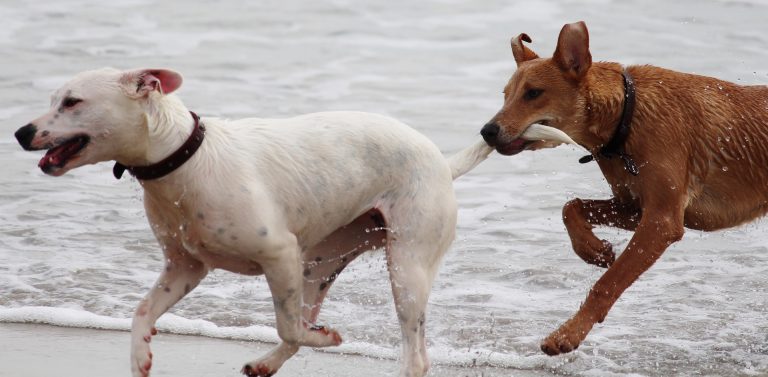
Training specifically for bite inhibition in puppies is an essential part of overall obedience, setting great guidelines for them in the future.
If you have never heard of bite inhibition, you’re in the right place. In this article, we will go over the reasons why it is important to develop this and how to go about it.
What is bite inhibition in puppies?
Bite inhibition is the way in which a puppy will bite. Using a small amount of pressure as opposed to full-strength biting is how a puppy inhibits their bite and this inhibition allows a puppy to cause little to no damage when controlling the pressure of their bite.
When your puppy grows up, bite inhibition plays a huge role in preventing them from hurting anyone when they’re frightened, anxious or simply playing. As well as improving relationships with both people and other animals when socialising.
How will inhibition training benefit me and my puppy?
Puppies use their mouths just as we would use our hands. This is one of the ways your puppy interacts with the world around them, taking in information to understand their interactions with people and other animals.
Because this is natural, bite inhibition in puppies works quicker and more effectively than trying to stop biting altogether. This training shapes their natural play behaviour into safe play. Attempting to stop biting completely is not rational, knowing a dog’s only means of defence is their teeth.
If your dog feels the need to defend themself in times of sickness or pain, this inhibition training will have programmed your dog to bite easily during a difficult situation. When training has been given to promote bite inhibition in puppies, as an adult, they will be gentler and calmer when stressed and needing to defend themselves.
How do I train my puppy to inhibit their bite?
There are 5 key points to consider when training for bite inhibition in puppies:
#1 Do not allow painful biting.
When your puppy bites hard, emit a loud squeal or yelp, signalling pain to your puppy. Immediately reward and resume playing as soon as your pup has stopped biting and has realized their “mistake.”
#2 When biting resumes, ignore.
After yelping to your pup, if they resume the painful biting, you must end the play. Do not give any attention at all. Stop.
#3 Eliminate all pressure during mouthing/biting.
Over time, allow gentle and low-pressure mouthing. Do this when your puppy is calm, working up to times of play. Reward the easy-pressure mouthing.
#4 Teach your puppy to follow your rules.
When you say the game is over, end it. Do do not allow them to convince you otherwise. Saying “no” then continuing causes confusion and can destroy the training you’ve built on.
#5 Allow mouthing only if invited.
Come up with a word for allowing this, and only let your dog use their mouth when prompted. This is called stimulus control, and it controls your pup’s behavior by only allowing certain things when cued by the owner.
Following these 5 simple steps can help you raise a well-mannered dog, providing the training needed when faced with a situation where they may bite to defend themselves.